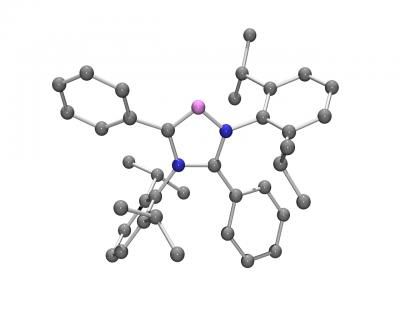Personal Chemistry announces licence agreement with Fluorous Technologies
The licensed method from Personal chemistry used in combination with cartridges from Fluorous Technologies for efficient purification, shortens the total process time from synthesis idea to compound-in-hand, from several hours to minutes.
The licensed patent covers new means for performing Heck, Stille and Suzuki reactions catalyzed by Palladium (except Pd/C), utilizing microwave energy. The method provides high yields and cuts previous long reaction times from several hours to a few minutes.
EVP of Business development Anders Qvarnstrom states, "Personal Chemistry has over the years dedicated vast resources to the development of microwave synthesis and in particular to synthesis method development. Our palladium patent is only the first of a long line of method patents that our customers and licence holders will benefit from. We are delighted to see the strong uptake of the methodology in the market".
Dr. Philip E. Yeske, President and CEO of Fluorous Technologies states, "We see tremendous potential for the combination of fluorous chemistry and microwave technology. The benefits seen when using palladium catalysis along with microwave technology and fluorous reagents is astonishing and through this agreement with Personal Chemistry we can now broadly market our latest products, including fluorous ligands and palladium catalysts. The license acquisition is a necessary and natural part of our strategy to further broaden our technology portfolio."
Personal Chemistry strives to continually develop Coherent Synthesis(TM) for more efficient chemistry development. It today comprises a wide range of products and services, including instrumentation, software, reagents and new methodologies. As a result of focused research efforts, Personal Chemistry has developed new methodologies for microwave-assisted chemistry. The first patent to be approved is US patent 6,136,157 and European Patent No. 0901 453 "Method for Organic reactions".
These products might interest you
See the theme worlds for related content
Topic world Synthesis
Chemical synthesis is at the heart of modern chemistry and enables the targeted production of molecules with specific properties. By combining starting materials in defined reaction conditions, chemists can create a wide range of compounds, from simple molecules to complex active ingredients.

Topic world Synthesis
Chemical synthesis is at the heart of modern chemistry and enables the targeted production of molecules with specific properties. By combining starting materials in defined reaction conditions, chemists can create a wide range of compounds, from simple molecules to complex active ingredients.
































































